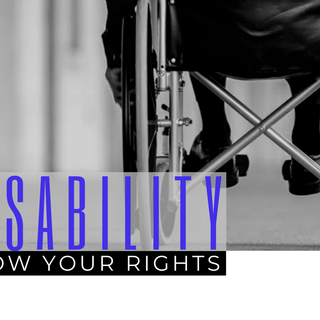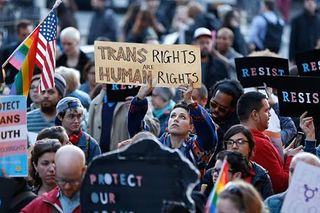
What India Can Learn About Trans Inclusion From the World
In the wake of the failed Transgender Persons (Protection) Act, Indian lawmakers need to improve health care, economic opportunities, and social inclusion for transgender people.

The Transgender Persons (Protection of Rights) Act, 2019, drafted by late BJP leader and Union minister Arun Jaitley, was recently approved by President Ramnath Kovind on December 5, 2019. The Act has received some backlash for its regressive and half-hearted approach to the rights and empowerment of transgender and intersex individuals.
Apart from going against the NALSA (National Legal Service Authority v. Union of India) judgment of April 2014, which legally acknowledged individuals not conforming to the binary gender system, the Act also impinges upon the freedom of transgender individuals. The Act mandates surgery, and a screening of transgenders by the district magistrate, before obtaining an identity card with their gender of choice on it. Surgery is not always a viable option for transgender people, given financial and biological constraints. Furthermore, not every transgender person may want a sex-reassignment surgery. Thus, the path to becoming recognized by law as transgender person is fraught with issues.
Trans individuals comprise 0.04% of the total Indian population, roughly 490,000 people, and only 30,000 of them are registered with the Election Commission of India. Denying equal opportunities for a sustainable livelihood to this minority not only has serious social implications but also impacts the economy adversely. The 2016 World Bank report estimated India’s loss in GDP due to homophobia (and by extension, phobia toward the whole LGBTQIA+ community) up to US$32 billion, or 1.7% of the GDP. Research globally shows that LGBTQIA+ inclusion leads to both business innovation and happier workplaces because employees can be themselves at workplaces that constantly protect and empower them. Delhi-based YP Foundation reported that in Kerala, 89% of trans individuals are mistreated at the workplace and 96% do not raise their voice against violence. Unsurprisingly, 100% of the respondents had had at least one experience of being denied a job due to their gender identity. Due to the systemic discrimination, 58% of transgender students drop out of school before Class 10.
Related on The Swaddle:
Talking With Alok Vaid-Menon About Art, Activism and the Transfeminine Movement
The reforms implemented by some governments across the world can provide alternate solutions to what is increasingly seen as a law that treats transgender individuals as inferior. In 2012, Argentina’s Senate unanimously approved the Gender Identity Law, making sex-change surgery a legal (but not mandatory) right. The procedure is included in both public and private health care plans. Article 2 of this law acknowledges the difference between gender and sex assigned at birth. Soon after, the Danish parliament followed suit and allowed legal gender recognition for transgender people over the age of 18, solely based on their self-determination; outside of Denmark, 34 European countries require a legal certificate and surgery/any medical procedure for trans individuals to be able to change their name. Laws such as those implemented in these countries give transgender individuals the right to choose, and autonomy over their lives, which is something often overlooked in the cases of such minorities.
Earlier this year, Canada introduced gender-neutral passports by allowing individuals to choose the gender “X” if they do not identify as male or female. This policy highlights just how crucial being legally recognized on a government document can be for transgender individuals. Having legal documentation helps in various other aspects: access to employment opportunities, housing, and health care. In several countries, requests by transgender people to be admitted in hospital wards of the gender of their choosing are often ignored, and when they do get admitted, they’re mocked and bullied by their fellow patients and medical staff. In certain cases, doctors report patients to the police, when the gender they choose to identify as is not the same as that on their legal documents. While Indian passports recognize a ‘third gender,’ it is not always helpful in the case of transgender people: trans men are different from trans women, who are different from intersex individuals; a ‘third gender’ also prevents transgender individuals from being identified within the binary system if they so wish. The State’s recognition of a minority will certainly reinforce acceptance by the society as a whole.
Transgender people and intersex individuals cannot always exercise their autonomy like their cisgender counterparts; they’re forced to undergo medical procedures such as sterilization. In 2013, the Australian Senate was one of the first to launch an inquiry into forced sterilization of intersex individuals. In the same year, the country also adopted the Sex Discrimination Amendment (Sexual Orientation, Gender Identity, and Intersex Status) Act – the first law to include intersex status as a stand-alone status against which discrimination is prohibited. The Indian Transgender Persons Act strongly prohibits discrimination on the grounds of gender and renders it illegal, too, but only in the case of government bodies, completely skipping private organizations from its purview. While the Act recognizes intersex individuals, it makes no specific provisions for their protection. India could also potentially learn from Malta for its efforts to increase the inclusivity and sensitivity of its laws: In 2015, Malta adopted the Gender Identity, Gender Expression and Sex Characteristics Act – the first law to prohibit surgery on intersex minors without due consent. It also prohibits discrimination on the basis of sex.
Health care provisions for transgender individuals in the Indian context seem like a far-fetched dream, but institutions such as the American Medical Association have started implementing policies for the mental health wellbeing of transgender individuals. In November 2019, the AMA implemented a federal ban on LGBTQI+ conversion therapy. It recognized the contribution of medical professionals in the othering of transgender people, and therefore took necessary steps to control the same. Conversion therapy is detrimental to the well-being of LGBTQIA+ individuals: The Trevor Project’s National Survey on LGBTQ Youth Mental Health revealed that 42% of the nearly 35,000 respondents, and 57% of transgender and non-binary youth who underwent conversion therapy, reported a suicide attempt.
Related on The Swaddle:
What a Transgender-Friendly Health Care System Would Look Like
One can’t divorce the social implications of India’s Transgender Persons (Protection of Rights) Act, 2019, from its economic ones. The two are largely intertwined. The Act, in its initial draft, made begging illegal for transgender people. While the idea behind this could be viewed as parental, its immediate implementation is not sustainable. Just because something is rendered illegal does not mean citizens can and will stop practicing it. Due to protests from the community and its allies, the statute was omitted from the final draft. Immediate discontinuation would disrupt an already uncertain source of gainful employment for many transgender people. Employment in the formal or informal sector would also require transgender and intersex individuals to have some training, vocational or otherwise, which they seldom have means for. Employers are already not keen on the idea of employing them for ‘respectable’ jobs. Studies reveal that about 96% of transgender individuals are denied jobs and are forced to take low paying, dangerous or undignified work for livelihood, like sex work and begging.
Development, and equality in distribution of resources, are largely futile and inefficient when linear and not encompassing of all sections of society, especially of minorities. While any intervention and/or policy to empower transgender and intersex individuals will only be effective when welcomed by the rest of the population, signaling a shift in attitude, policymakers need to be more sensitive and mindful so as to not implicitly perpetrate or encourage pre-existing discrimination.
Anchal Khandelwal is a research assistant in the Department of Economics at Monk Prayogshala who focuses on the intersection of gender studies and economics.
Related


Men More Likely to Receive Pay for Parental Leave than Women: Report
